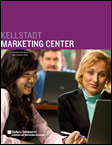 Homepage > Program Overview | |
Customer Relationship Management (CRM) Certificate ProgramCustomer Relationship Management is a strategic methodology that recognizes customers as the core of the business. Organizations are finding that if they enhance the customer experience, a relationship can form between the customer and the organization. Sustaining this relationship over time can lead to growing customer satisfaction and loyalty, which in turn enhance the organization's competitive position as well as increase its profitability. Through text readings, case studies analysis, quizzes, exams and exercises, you will gain a firm understanding of the key decision variables required to successfully adopt and use this methodology in B2C, B2B and B2B2C environments. “The CRM online course was a good learning experience. The instructor unselfishly shared his knowledge and expertise in explaining everything that involves CRM. You can easily reach out to him if you have any questions and he will also give you honest feedback regarding your case studies assignment. I would recommend this course to anyone who is interested in learning CRM. Bob did an incredible and awesome job.” -Blesilda Sham The course is designed for individuals at any level in Marketing and Sales or non-marketing professionals interested in understanding how they affect or are affected by CRM practices.
Whether you are a CRM novice or want a fresh approach to your previous CRM training, you will gain:
Week 1 Topics Covered:
Class Work:
Week 2 Topics Covered:
Class Work:
Week 3 Topics Covered:
Class Work:
Week 4 Topics Covered:
Class Work:
Week 5 Topics Covered:
Class Work:
Is there a required text?
Are there course materials? All materials will be included in the weekly notes and lectures. Are course materials included in the tuition fee? Yes. All class materials are covered in the tuition fee and will be distributed online. Is there required software? All software used is through the DePaul D2L website. Firefox is the recommended Internet browser to ensure stability and video access. This is a free, readily available internet browser. Some employers prohibit installation of any software which they do not approve. Firefox should not be an issue with employers, but if it is, then the participants may need to use their personal computers. Do I need a computer? Computer access (Windows or Mac OS X) is required as well as a reliable (broadband) connection to the Internet. Is this class very technical? Some of the topics are technical but are described in a way that a non-technical-orientated person can comprehend. At every stage, theory is integrated with technology. This course is targeted to both non-technical as well as technical participants. The text has some technical aspects, but do not let them frighten you. This course focuses on theory and applicaiton, not numerical analysis. How much time would I spend on the course each week? The time commitment varies based upon the student’s current level of CRM knowledge as well as to what extent the student immerses himself in optional supplemental readings. One should plan to spend 5 – 10 hours per week outside of class time. What are the main deliverables for the course and how am I measured? Is there a grade? Students are measured on their ability in three areas: discussion panels, writing assignments, and a final project at the end of the course. One of four possible grades may be earned: High Pass, Pass, Low Pass or Failure. In the event of a failing grade, the instructor provides an additional assignment to enhance the student’s understanding of CRM and an opportunity to pass the program. Will I have an opportunity to interact with the instructor? The instructor will have dedicated office hours every Friday from 3 p.m. to 5 p.m. Central time (8 to 10 p.m. GMT). During this time, any emails or direct messages will be answered immediately. You should also feel free to email the instructor at any time with questions. The instructor is committed to responding within 24 hours (usually much less). In addition, an optional one-hour Zoom session will be held every Sunday afternoon at 3 p.m. Central time (8 p.m. GMT) where we can gather as a group, exchange ideas, and have questions answered. These Zoom sessions will be recorded for the benefit of those who are not able to attend live. What are the requirements for the Integrated Marketing Communications Certificate? To receive the IMC certificate, students must successfully complete three required courses and two elective courses plus one seminar. Follow the link to learn more about the IMC Certificate and review the list of courses Do I get DePaul credit for these classes? No, but some have been approved for CEU credits. These classes are professional education classes with different requirements than courses taken for academic credit. What is the difference between a certificate and a certification? A certificate is earned after completion of a course or a series of courses. Certificates are usually awarded by a training provider or an educational institution. Certification typically includes an experience, an educational component and requires passing an exam. Certifications are awarded by governmental and/or professional agencies and often require recertification to remain certified. For More Information, Contact:Jurate MurrayEmail: jmurray9@depaul.edu | Upcoming Class OfferingsThere are no classes currently being offered in this program. Check back again!Paper RegistrationIf you wish to register for a class via a paper form, click here. Student PoliciesClick here for a list of our student policies. Contact UsFor general inquiries, please email us or call 312-362-6300. |
